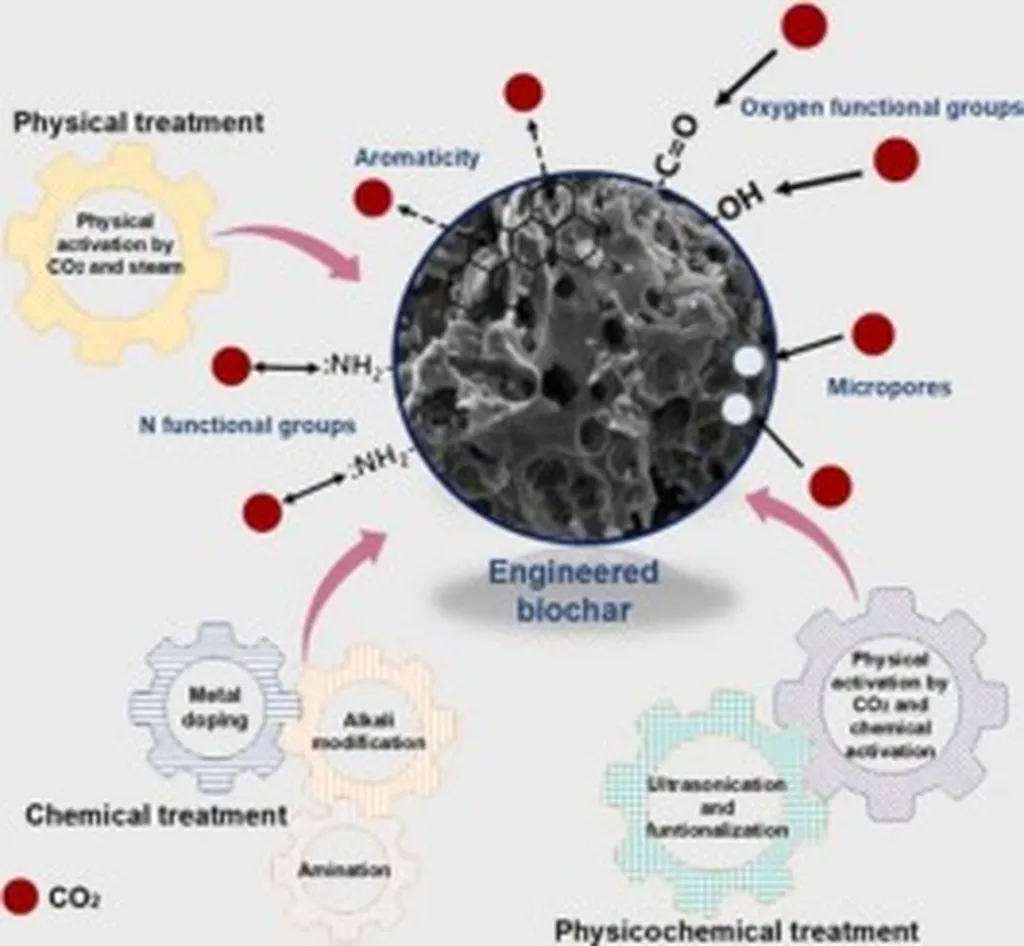In a groundbreaking study published in the journal “Chemical Engineering Transactions,” researchers have unveiled a promising avenue for combating rising atmospheric CO2 levels. The study, led by Kiara Atina Csaszar, explores the potential of metal-impregnated biochars as a sustainable and efficient solution for carbon dioxide capture and storage (CCS).
Biochars, derived from biomass, have long been recognized for their porous structure and large surface area, making them ideal candidates for CO2 adsorption. However, the recent research highlights that the efficiency of biochar can be significantly enhanced through the impregnation of metallic elements. “The impregnation of metallic elements such as alkali, alkaline earth, and transition metals provides additional active sites and alters the electron structure of the biochar surface,” explains Csaszar. This enhancement leads to improved CO2 capture through both physisorption and chemisorption processes.
Physisorption, the initial stage of CO2 capture, is bolstered by the increased electrostatic interactions between CO2 molecules and the metal ions on the biochar surface. Transition metals like iron, copper, and nickel further promote chemisorption, where CO2 undergoes more stable binding or reduction effects to form new compounds. For instance, impregnation with calcium and potassium enhances the alkaline nature of biochar, resulting in better adsorption through acid-base interactions with CO2.
The commercial implications of this research are substantial. As the energy sector grapples with the need to reduce carbon emissions, metal-impregnated biochars offer a sustainable and energy-efficient solution. The use of sewage sludge-derived biochar, as explored in this study, not only provides an efficient adsorbent for CCS but also addresses waste management issues. “This approach is not only environmentally friendly but also economically viable,” notes Csaszar.
The study’s findings could pave the way for innovative CCS technologies that are both effective and sustainable. By leveraging the unique properties of metal-impregnated biochars, the energy sector can make significant strides in reducing atmospheric CO2 levels and mitigating the impacts of climate change. As the world continues to seek sustainable solutions, this research offers a glimmer of hope and a promising direction for future developments in carbon capture and storage.

